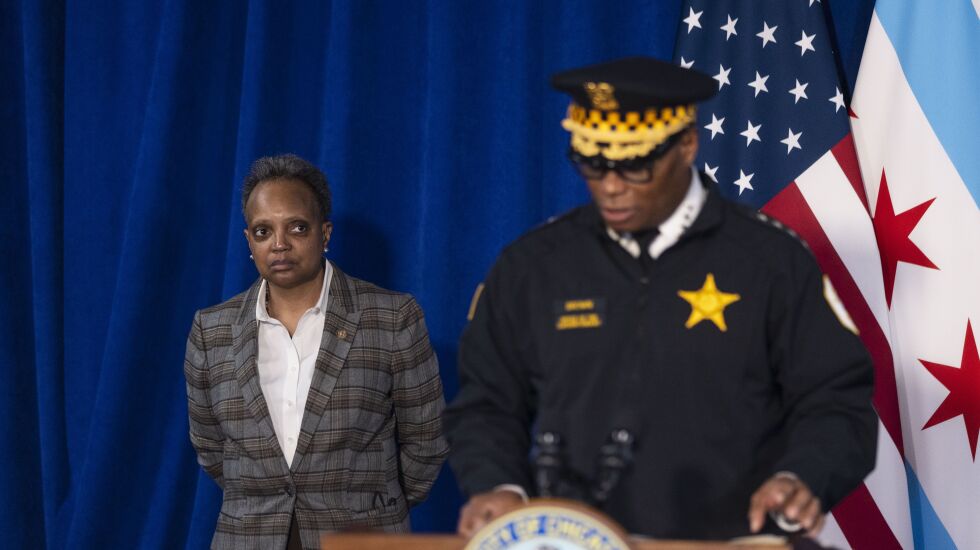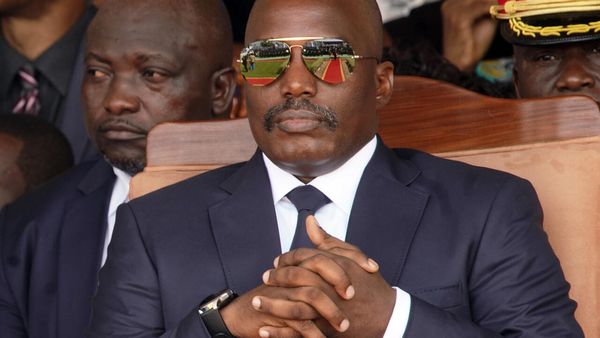
Chicago Police Supt. David Brown held a tense meeting this week with the court-appointed monitor tracking his department’s compliance with a federal order mandating sweeping reforms.
He struggled to explain how he would meet a key deadline while deeply cutting staff that was implementing those reforms, according to several people at the meeting.
The next day, Brown fired the police official overseeing the court-ordered changes because he raised the same concerns in an email to the superintendent, setting off a firestorm of criticism and questions about the department’s commitment to reform.
The official, Robert Boik, objected to Brown’s plan to take 46 officers from the Office of Constitutional Policing and Reform and assign them to patrol duty. Brown has been under pressure to boost patrols on the CTA and other high-crime areas, a struggle that has required him to cancel officers’ days off.
Boik argued that those officers were crucial to providing 40 hours of required training to nearly every officer by March 3 — training that is a key component in many of the reforms ordered by a federal judge in the wake of the police killing of 17-year-old Laquan McDonald.
That deadline loomed during a meeting Monday between Brown and officials assessing the department’s progress, including Maggie Hickey, the court-appointed monitor, and representatives of the Illinois attorney general’s office.
Hickey asked Brown to explain his decision to move the 46 officers and questioned him about meeting the March 3 deadline, according to people at the meeting.
The superintendent insisted the department would rely on an overtime initiative, tapping officers to volunteer to teach classes during their regular days off. Qualified officers would themselves have to be trained for a week.
The monitoring team and the attorney general’s office pressed Brown about his plan, and multiple people said the superintendent was unable to provide specifics. Instead, he repeated that the department would meet its obligation, saying at one point, “I’m not going to be threatened that we’re not going to make the 40 hours of training.”
Boik’s replacement, Tina Skahill, came up with the overtime plan, sources said. She rose to the rank of chief as a sworn officer and had most recently worked as a civilian in Brown’s office before being tapped for Boik’s job.
The plan harkens back to an initiative in the 1980s and 1990s in which off-duty officers were used as “role players” to help teach a class at the training academy, sources said. “They’re running this department as though it was the 1990s and not the 21st century,” one source said.
Police officials have begun exploring another option of moving sworn personnel from the Office of Public Safety Administration to the training academy, according to sources.
It’s unclear what plan will be implemented.
Brown’s office would not comment on the meeting or the plans, saying only, “the Chicago Police Department continues its work to reform the department while balancing its need to ensure the safety of residents of Chicago.”
Hickey didn’t respond to a request for comment Thursday, but the attorney general’s office said in a statement that the staff cuts “must not compromise the quality or quantity of training provided to officers or slow the department’s progress on consent decree compliance.”
“High-quality training for CPD officers is a core requirement under the consent decree,” noted the office, which has been involved in monitoring the progress of reforms because it was a party to the lawsuit that resulted in the federal consent decree.
The statement singled out Boik’s “service and commitment to transforming the CPD,” saying he “deserves significant personal credit for the increase in consent decree compliance ... and his ability to drive positive change will be sorely missed.”
The most recent progress report from Hickey’s team was filed in April, and pointed to a “need for increased resources and staffing” in the department’s training division. The report said better training was “at the heart of many consent decree requirements.”
Many sections of the court order deal specifically with the quality of training offered by the department, and it’s unclear how thinning the ranks of the constitutional policing office could affect future compliance.
In his email to Brown, Boik warned that moving the 46 officers puts the department at risk of losing “8% of our current consent decree compliance.”
Boik said he had asked First Deputy Supt. Eric Carter for 23 more people to “serve as trainers” at the academy to meet the “court-mandated obligation to provide 40 hours of in-service training to every sworn member.”
That included training on use of force, crisis intervention and gender-based violence, among other things. Instead, Boik wrote, he was told that 46 officers were being sent back to patrol.







